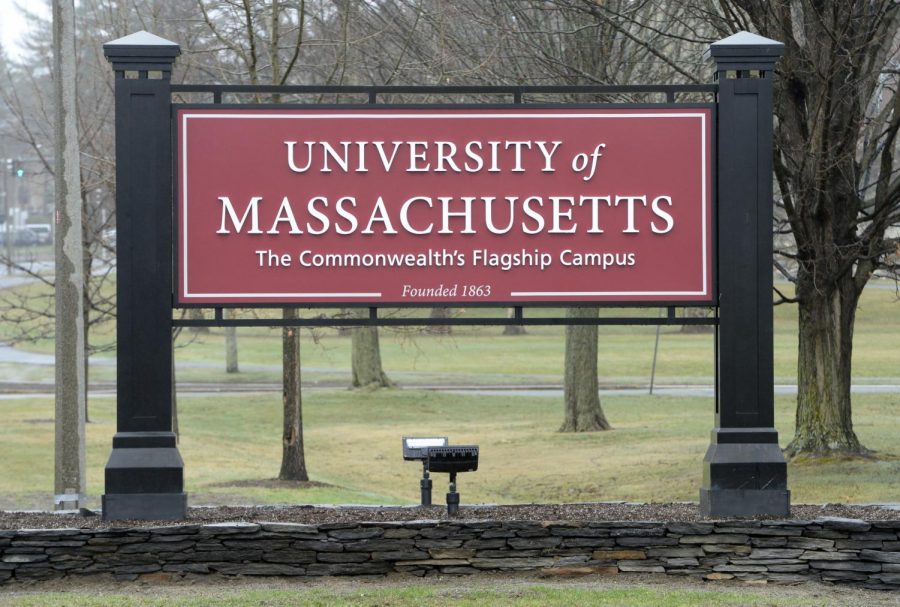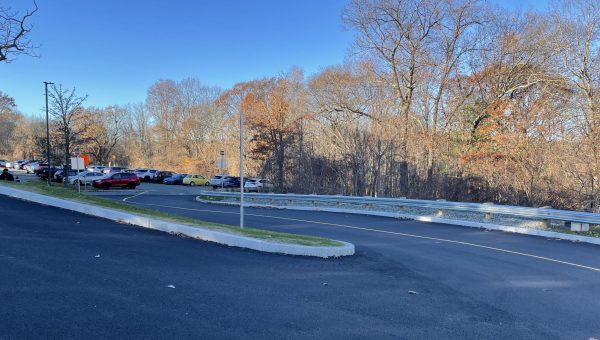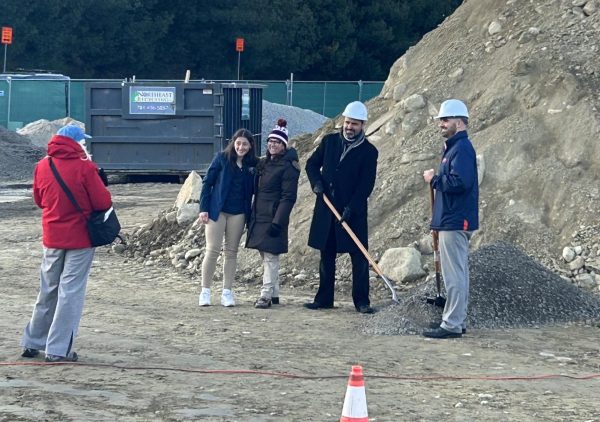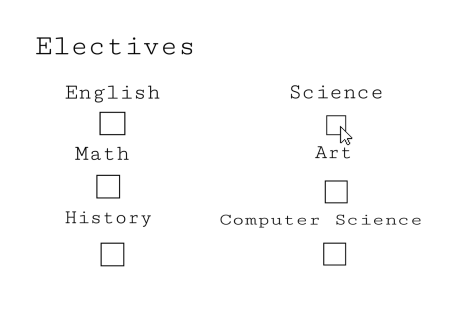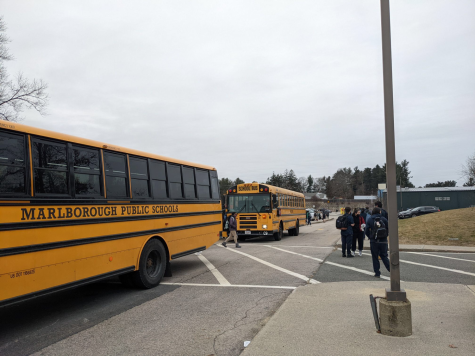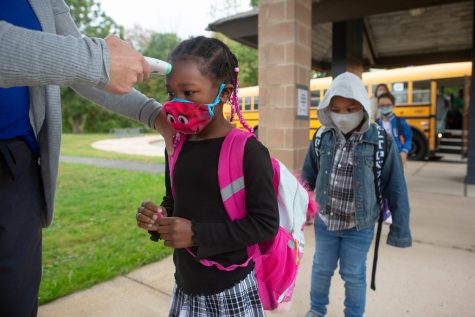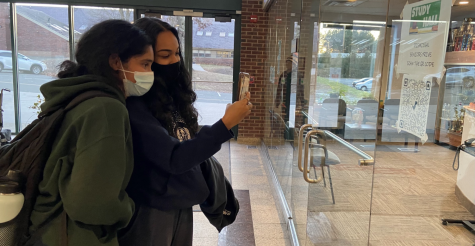Seniors face a college application process filled with unknowns
The University of Massachusetts Amherst is a common destination for AMSA graduates.
Finding and applying to the right college is a fundamental part of senior year, but with the ongoing effects of the Covid-19 pandemic, current students have had to adapt. From choosing the college of their dreams, to the actual application process, they have had to change their approach to a once traditional application process.
A cherished part of choosing a school is a college tour. But over the past year, seniors have lost the privilege of strolling campuses and have been forced to explore schools online only.
“Touring colleges is such a big part of narrowing down your list and starting to figure out where you want to go,” said Sarah Morrissey, one of AMSA’s senior guidance counselors. “So many of the schools make everything so beautiful on their websites and everything looks like the most amazing place to go to school, [but] until you actually get onto campus, it is hard to really get that feeling of ‘is this the place I fit in?’, ‘are these students like me?’, or ‘ is this the place that I feel like I can grow as an individual?’ Until you get to see that first hand, it’s hard to make that decision.”
Most colleges and universities have adapted by improving their online presence, including the expansion of online tours. Colleges have also been hosting interactive online tours, most commonly on Zoom and Instagram Live.
According to AMSA senior Eva Pelliccio, the online tours range from 20-50 participants and “on most of the tours via Zoom, they had someone answering questions that seniors proposed in the chat.”
A less fun but vital part of the application process is test scores, which can be difficult to obtain because of restrictions resulting from the pandemic. Many colleges and universities are allowing students to apply using test-optional applications.
“Of the students who took [the SAT] last December, they took it just to get the experience without really studying and without doing much of the prep work,” Mrs. Morrissey said. “For the students that had scores, there weren’t many that were sold on their scores. They would have preferred to take it a second time. So we did have a lot of students that opted for test-optional applications.”
Test-optional applications are now commonplace, but some local test centers have been available for students, such as one hosted by Algonquin High School.
“I took the SAT first in October 2019 as a junior,” Eva said. “I didn’t retake it over the summer. I just kind of let it sit and thought it was good enough. Then everyone’s tests started getting canceled. I panicked and quickly scheduled to take it [again in] early October. Every other test center was closed, so I was so lucky. I went to Algonquin; we sat in this big gym. Everyone was six feet apart. It was great.”
Test-optional applications can be tricky. Some students worry whether they should turn in less-than-ideal results or stick with just their grades and wonder if SAT/ACT scores will matter.
“Even though a lot of schools have gone test-optional this year, I think seniors are still feeling the pressure of the unknown,” Mrs. Morrissey said. “Sending in SAT scores is what students have always done and it’s a big part of the application process. This has been a big topic within meetings with students.”
Eva faced similar questions.
“The majority of the kids I talked to didn’t get to take the SAT or didn’t get to take it a second time,” she said. “For the kids that didn’t get to take it, their GPA is all the college is looking at.”
While guidance counselors have always helped students with college applications, in this new online-based era, they have a more critical role than ever.
“I‘ve done individual meetings via Zoom with almost all of my 65 students,” Mrs. Morrissey said. “Some students I have met with multiple times.”
Students fortunate enough to visit campuses have mostly been limited to self-guided tours. Eva was lucky enough to have an inside source, although even that came with restrictions.
“My mom went to [the University of New Hampshire], so she gave us her own tour,” Eva said. “But we didn’t get to go into any of the buildings.
In a time so reliant upon online experiences, students are hoping that what they see is what they end up getting.

